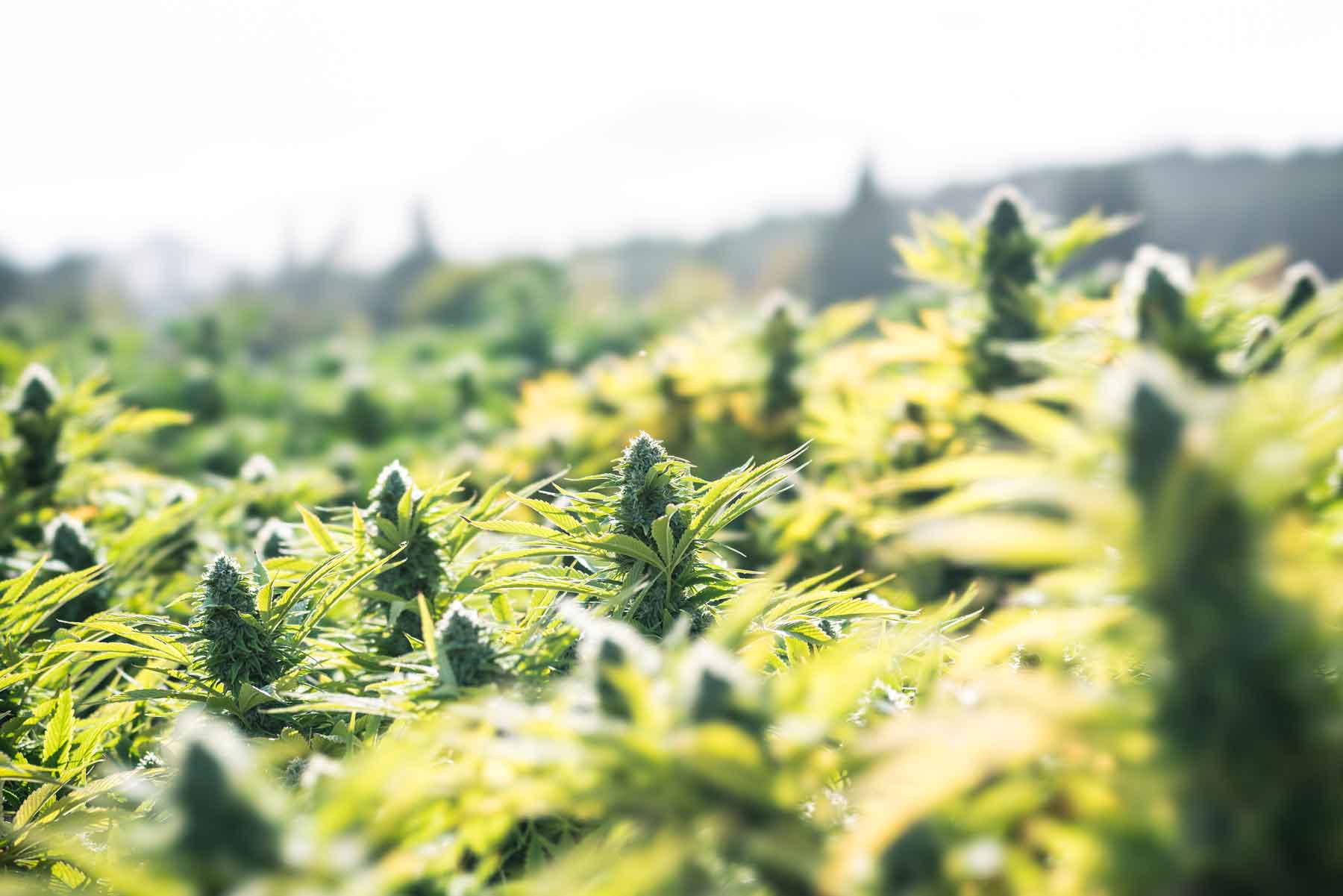The short answer is that delta-8 falls into a gray area, meaning its legal status is not entirely clear. However, several states have taken steps to ban its use, and others may soon follow their lead. As of right now, you can find these products on store shelves and online, but that doesn’t mean that they’re regulated and proven to be safe.This article will address what you should know about delta-8 — what it is, how it works, and if it’s safe and legal to use.
What is delta-8?
The cannabis plant contains
over 100 different cannabinoids — compounds that affect the body. You’ve probably heard of the two main cannabinoids that occur in higher amounts: cannabidiol (CBD) and THC. But there are many other
minor cannabinoids that occur in lesser amounts, including cannabinol (CBN), cannabigerol (CBG), tetrahydrocannabivarin (THCV), and delta-8-tetrahydrocannabinol (delta-8). Delta-8-tetrahydrocannabinol — delta-8 for short — was discovered in 1965 by the “Father of Cannabis,”
Dr. Raphael Mechoulam. Of the minor cannabinoids, it’s one of the only ones that has shown to be intoxicating or make you “high.” But because delta-8 is found in lower amounts, it’s more difficult (and more expensive) to extract from the plant to be used in products.Delta-8 bears many similarities with THC. In fact, the scientific name for THC is delta-9-tetrahydrocannabinol (also called delta-9). This means that delta-8 and delta-9 are both different forms of the THC molecule. More on this next.
What’s the difference between delta-8 and delta-9?
Delta-8 and delta-9 have similar chemical structures, which means that they may have similar
chemical properties and effects on the body. In fact, this
has been shown to be the case.However, the effects of delta-8 are notably less potent. This means that delta-8 can cause you to feel “high,” and it might have similar therapeutic effects, but it would likely be to a lesser degree than with THC. For example, the number after “delta-” in their names is the location of the double bond in their chemical structures. This location
has been thought to be mostly responsible for the feelings of being “high.”This small difference in the structures causes THC to be
less stable than delta-8, meaning that it can be more reactive and potent in the body. It’s also why both molecules
interact differently with the endocannabinoid system — the system in the body that directly interacts with cannabinoids. However, more studies are needed to fully understand delta-8’s relationship with this system and with the rest of the body.
What’s the difference between delta-8 and CBD?
Cannabidiol (CBD) is one of the other main cannabinoids found in the cannabis plant. But unlike delta-8 and delta-9 THC, it isn’t psychoactive. And similar to delta-8, CBD’s legal status is also somewhat complicated. For example, you can easily find it in stores or online, even though the FDA says that it’s illegal to add it to food or sell it as a dietary supplement.Compared to CBD, delta-8 and delta-9 THC are more similar in their chemical structure, their relationship with the endocannabinoid system, and their potential benefits. The way in which CBD works in the body is a bit more elusive. However, it’s been established that CBD does not produce feelings of being “high” on the mind or body. So if you are looking for the potential benefits of CBD — anxiety relief, sleep aid, and pain management without intoxicating effects — then delta-8 would likely not be the right choice for you.
What are the effects of delta-8?
Given the similarities between delta-8 and THC, you may also experience some of the same side effects. But because delta-8 is a minor cannabinoid with far fewer human studies, there are less published findings on its side effects and warnings.However, side effects that may overlap with THC can include:
Given the similarities between delta-8 and THC, you may also experience some of the same side effects. But because delta-8 is a minor cannabinoid with far fewer human studies, there are less published findings on its side effects and warnings.However,
side effects that may overlap with THC can include:
- Dry mouth
- Red eyes
- Paranoia
- Feeling hungry
- Nausea and vomiting
- Anxiety
- Faster heart rate
Does it get you 'high'?
The short answer is yes, delta-8 can get you high — just not to the same degree as regular THC would. Some people may use delta-8 as a way to have a THC-like experience. Anecdotal evidence supports that the high from delta-8 is a smoother, more mild high rather than the more intense one from THC.
Does delta-8 have health benefits?
Due to some of its similarities with delta-9 THC, it’s possible that delta-8 could be used for a number of similar conditions. For example, studies have shown promising results for use in
stimulating appetite, lessening
nausea and vomiting,
calming anxiety, and
easing pain. Apart from limited human studies and anecdotal case reports, most of the research has been done on animals. And the
contrast between animal and human data shows the need for more research concerning the safety of delta-8 since it may affect species differently. Because of this, we don’t have concrete evidence that delta-8 is safe to use in humans or know if it is effective in treating certain conditions.
Is delta-8 legal?
Delta-8 is in a metaphorical legal haze. Due to the Agriculture Improvement Act of 2018 (also referred to as the
2018 Farm Bill), hemp can be grown and used in products across the United States. Hemp is a variety of cannabis that contains less than 0.3% THC content. However, the bill was silent on the use and legality of delta-8, specifically. To make matters more complex, delta-8 can be sourced from both hemp and marijuana plants. The difference between the two sources is the amount of THC content — hemp is below the federal threshold (0.3%), and marijuana is over the amount permitted. Because of this, the delta-8 products sold today are from hemp sources.
Federal law
As a follow-up to the 2018 Farm Bill, the Drug Enforcement Administration (DEA) released a document called the
Interim Final Rule in 2020 with the goal of emphasizing the differences between marijuana and hemp. The document clarifies that all synthetically derived tetrahydrocannabinols — which would include delta-8 and delta-9-THC regardless of source — are Schedule I controlled substances. Schedule I substances include
illegal drugs (like heroin and ecstasy) that have high abuse potential and don’t have accepted medical use in the U.S. In other words, delta-8 would be considered illegal if the new rule goes into effect. This new language is set to be reviewed in fall 2021. So until then, there is no clear-cut answer as to the legal status of delta-8, specifically at the federal level. However, several states have taken action in restricting delta-8, and others will likely follow.
State laws
Since delta-8 isn’t explicitly referenced in most state laws, this means that new legislation needs to be passed to address it. As of May 2021, only
15 states mention delta-8 in their laws, detailing that it’s illegal to purchase or use it. States that have banned delta-8 include:
- Alaska
- Arizona
- Arkansas
- Colorado
- Delaware
- Kentucky
- Idaho
- Iowa
- Mississippi
- Montana
- New York
- Rhode Island
- Utah
- Vermont
- Washington
Does delta-8 show up on drug tests?
It depends, but probably. Drug tests look for regular THC (delta-9). And because of its similarities to THC, delta-8 lasts in the body for a similar length of time and could be picked up by a drug test. It is worth noting that the way delta-8 and THC are broken down in your body can be highly unique to you. There are a number of factors that influence this, including how the substances are being consumed (e.g., smoking, edibles) and what other cannabinoids are present in the product. How long delta-8 stays in your system can also be affected by these variables, as well as how often you consume these products and their potency.The bottom line is that if you’re concerned about failing a drug test, it’s best to avoid delta-8 products.
The bottom line
Delta-8 is a fascinating new compound to the cannabis market. With its many similarities to THC, delta-8 may have the potential for use in similar conditions. More research is required to figure out exactly what those uses are, as well as the overall safety and effectiveness of this compound.But what we do know is that delta-8 will likely be more regulated in the near future. If you’re currently using these products, it’s best to discuss them with your provider since there are many unknowns about their use in humans. And if you’re worried about failing a drug test, it’s best to avoid delta-8 altogether.












